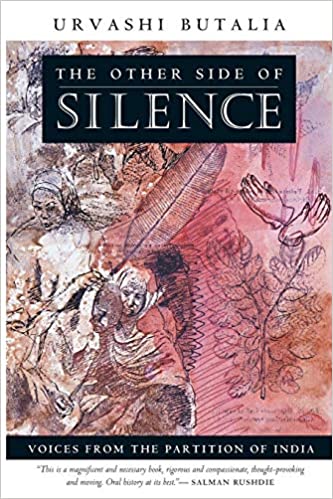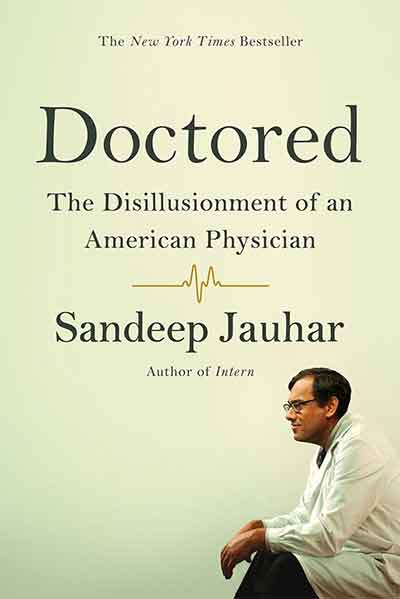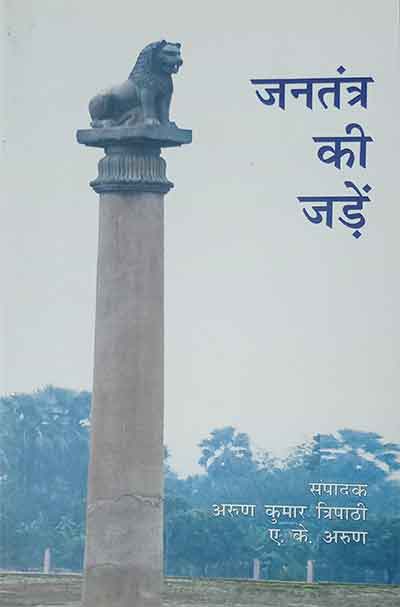How Do Human Beings Relate to Their History? A Book Review of Urvashi Butalia’s The Other Side of Silence: Voices from the Partition of India
I am a big believer in the power of books to change the world. In my journey as a reader, I have come across a few of these sorts of books, one of them being The Other Side of Silence: Voices from the Partition of India by Urvashi Butalia. Even twenty-four years after its initial publication, Butalia’s informed and sensitive work is not only relevant but still positively radical, and therefore, worth visiting over and over again.
 The subject of this book is the oral testimonies of the people who were on the socio-political margins in the records of the Partition of India, and range the spectrum of victim and perpetrator – often walking between the two categories – within the horrific violence that took place. In contrast to the usual books on this nation-founding topic, which prioritize ‘official’, ‘objective’ records catalogued and analyzed by people of high stature (i.e., politicians and academics) Butalia’s work foregrounds the voices and experiences of ordinary people who had first-hand proximity to and participation in the atrocities of the event itself. The impetus behind this project is Butalia’s burning question: “how do human beings relate to their history?”
The subject of this book is the oral testimonies of the people who were on the socio-political margins in the records of the Partition of India, and range the spectrum of victim and perpetrator – often walking between the two categories – within the horrific violence that took place. In contrast to the usual books on this nation-founding topic, which prioritize ‘official’, ‘objective’ records catalogued and analyzed by people of high stature (i.e., politicians and academics) Butalia’s work foregrounds the voices and experiences of ordinary people who had first-hand proximity to and participation in the atrocities of the event itself. The impetus behind this project is Butalia’s burning question: “how do human beings relate to their history?”
For Butalia, this question is inherently emotional, inherently personal. She confesses that she had no interest in Partition in her earlier life, even though her parents were directly affected by it. Only in 1984, with the reprisal of communal violence directly visible to her did she become curious about Partition as it resurfaced into people’s memories and began to inform their thoughts and actions. And we see this happening yet again in the present day, with the festering pain of unhealed historical wounds causing people to lash out in unthinking, incommensurate ways against their fellow citizens, neighbours, classmates, colleagues, etc – to what end?
When Butalia first wrote The Other Side of Silence, it was radical for its historiography of emotions and feelings. That is to say, because it relied on oral testimonies of decades-old memories of trauma (and trauma is famous for its ability to tamper with and erase memory), it was not necessarily considered a serious work of historical investigation given that memory is widely regarded as an unreliable source within traditional models of historical research. However, what other sort of resources can be relied on when the project itself is invested in how the experiences of everyday people inform the kinds of lives they live later on, in their homes, in their religious practices and in their politics? Moreover, how else could such people make themselves heard? – certainly not from the pages of books on the great deeds of great men. I would argue that Butalia’s work is radical now for the opposite reason. We find ourselves living at a time where the subjectivity of a person completely informs their movement in the world: for example, the idea that the ‘personal is the political.’ While I believe this to be a highly positive and democratic development, I am wary of the extremes to which it is sometimes carried – of the habit of some to isolate themselves within their own perspectives and force those around them into one polarized camp or another. When ordinary people do this it’s bad enough, but when people with wealth and power to this it can have devastating consequences on the trajectory of entire nations.
Enter The Other Side of Silence, which balances beautifully a deep sensitivity and elegant curiosity for the stories of people conditioned to keeping silent about themselves, with, what I think of as, a ‘critical emotionality’ in order to offset the captivating power of stories on human beings. To this end, Butalia reiterates the incomplete nature of memory as a resource throughout her work, and takes care to contextualize her positionality to the testimonies. This allows readers to have as much transparency as possible as to why she conducts her interviews and analysis with the angle that she does, and also provides a model for evaluating ourselves when we are confronted by notions that are both easy and very difficult to digest, especially when they are packaged within a narrative framework. Through this work, Butalia shows how a compassionate approach to the subjectivity of others and oneself leads to a more holistic objective perspective for interested on-lookers.
After the foregoing it is perhaps needless to say, but Butalia’s incredibly courageous work is as much a text for our times as it was for the time of its publication. Those who are fortunate enough to read it may very well change their tread upon the earth, to a softer and more understanding one, making the world a kinder, more productive place.
Farheen Khan is a writer based in Toronto

















































